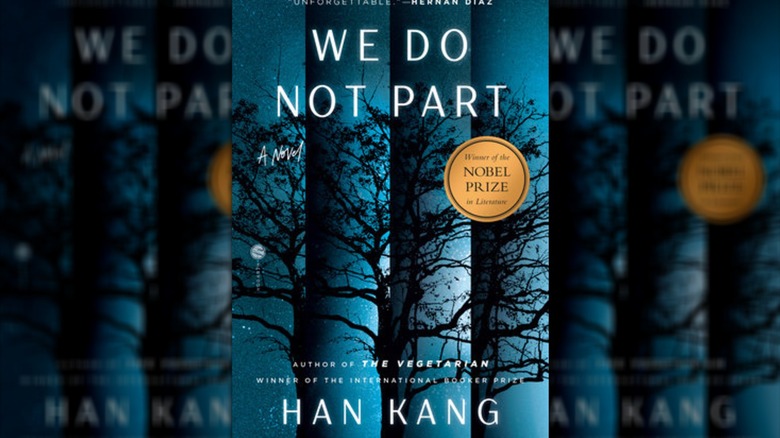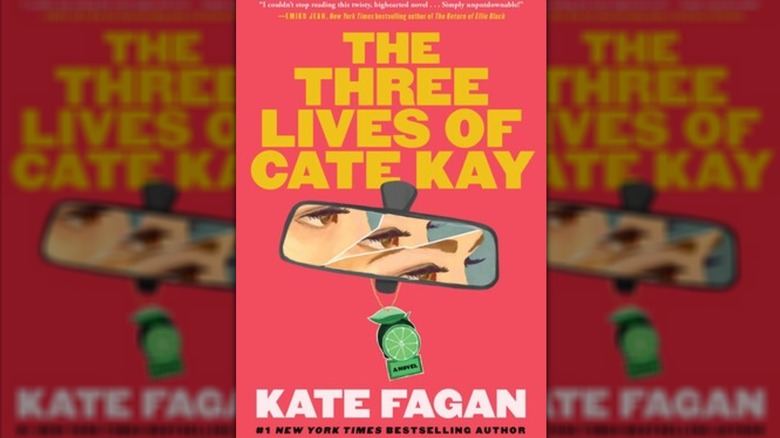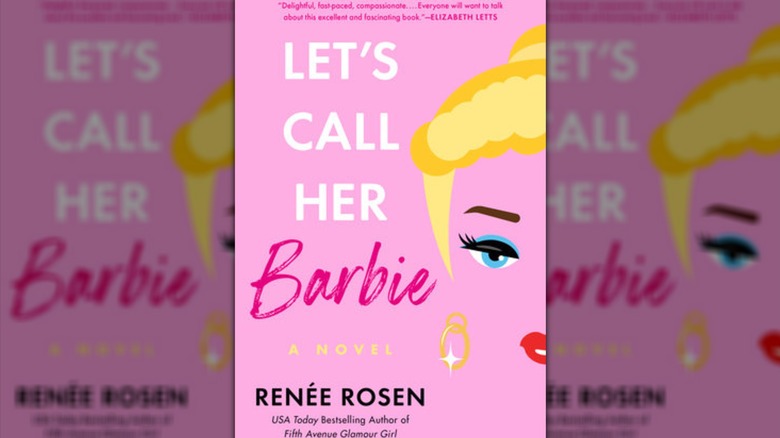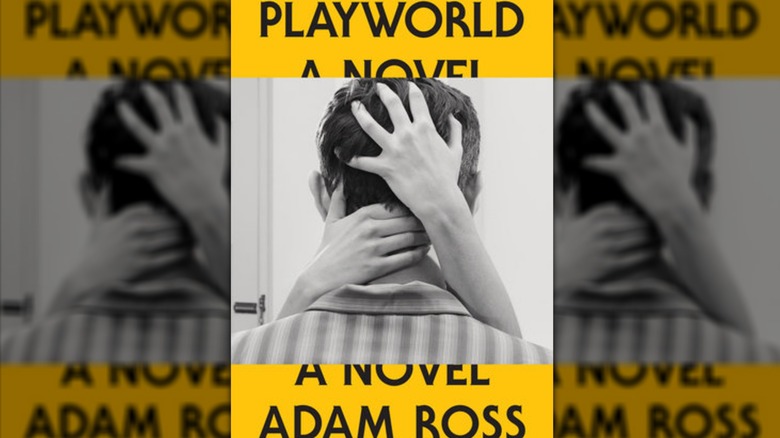The Best January 2025 Releases To Pick For Your Book Club
The start of the new year always symbolizes the start of a new chapter in life. In the literary world, we have actual chapters. So what better way to embrace this new beginning than with a sparkling collection of books? As we turn the page into 2025, there's only one thing to say: new year, new reads! January certainly kicks off the new year with a bookish bang. Be it immersive fiction to transport the mind, or eye-opening non-fiction to feed the brain, there's a host of exciting releases on offer, all promising to enthrall and provoke thought. You may already be following a celebrity book club, or perhaps you're a lone reader, but if you've found your perfect reading circle closer to home, now's the time to get stuck into these standouts. Bag them fresh off the shelves at the dawn of the year, because nothing beats discussing a book with a community of passionate readers.
We Do Not Part by Han Kang
In 2024, South Korean literary heavyweight Han Kang was awarded the 2024 Nobel Prize for her "intense poetic prose that confronts historical traumas and exposes the fragility of human life." In January 2025, she's set to return with a new offering: "We Do Not Part." Translated from Korean into English by E. Yaewon and Paige Aniya Morris, this novel promises to add to her already impressive oeuvre. The story follows Kyungha, who leaves the familiar electric cityscape of Seoul at the behest of an old friend, Inseon. Her task seems straightforward: to care for the fragile bird left unattended. But her arrival on Jeju Island coincides with a brutal, unforgiving snowstorm. As Kyungha makes her way through the island's ice-choked forests, her journey becomes a more complex uncovering of trauma, both personal and collective: a reckoning with the echoes of a massacre that scarred Jeju decades before.
In their commendation, the Nobel Committee lauded Kang's "empathy for vulnerable, often female, lives" and her "metaphorically charged prose." Her writing, they observed, possesses a rare capacity to navigate the diaphanous boundaries between the living and the dead, the tangible and the transcendent. Should "We Do Not Part" echo the lyrically daring, emotional resonance of Kang's previous work, it will undoubtedly become a treat for book clubs everywhere.
The Three Lives of Cate Kay by Kate Fagan
"The Three Lives of Cate Kay" is one of the most hotly anticipated releases of January 2025. The intrigue lies not only in its tantalizing plot — which follows the life of a pseudonymous queer author dismantling her own secrecy to uncover her true self — but also because it's the fictional debut of Emmy-winning journalist Kate Fagan. Since leaving ESPN, she has redirected her storytelling acumen into contemporary fiction, bringing with her the same acute perception and emotional resonance that defined much of her nonfiction work (see "What Made Maddy Run," about a UPenn track and field athlete who took her own life, and "The Reappearing Act: Coming Out as Gay on a College Basketball Team Led by Born-Again Christians").
Cate Kay, the novel's eponymous protagonist, is a bestselling author with a blockbuster-worthy trilogy, despite one glaring fact: Cate isn't real. Beneath her carefully crafted public persona lies a tangled web of suppressed truths she must now face. The book has been likened to BookTok sweetheart Taylor Jenkins Reid's beloved "The Seven Husbands of Evelyn Hugo," and Ashley Elston's New York Times bestseller "First Lie Wins" — a sure sign it's on track to become a book club must-read.
You'll Never Believe Me by Kari Ferrell
Kari Ferrell was a legend of her own making, becoming a viral sensation before the term had even established itself in the cultural lexicon. Known to the blogosphere as the "Hipster Grifter," Ferrell became the internet's dark fascination in the late 2000s. Her repertoire of scams was brazen and bizarre: stolen wallets, fraudulent checks, fabricated abortions, and a knack for infiltrating social and professional circles with unnerving ease. Her tattoos and fixation on the indie scene rendered her the very picture of contemporary Brooklyn, where she had fled after charting on Salt Lake City's most-wanted list for her escalating exploits. After lying her way to a job at Vice, her duplicity was eventually exposed, and later immortalized with the publication's unforgettable article, "Department of Oopsies! — We Hired a Grifter."
Now, in "You'll Never Believe Me," Ferrell has taken to memoir to rehabilitate her image. On Instagram, she wrote: "I've played a lot of characters in my life: adoptee, Mormon, felon, manic pixie nightmare, writer (of good articles and bad checks), corporate lackey, inmate, sexual deviant, viral story, bad role model minority, the list goes on and on..." She insists she has moved on, claiming new roles as "an activist, educator, great friend, loving wife, creator, and many more positives." The question is: can we believe her?
Let's Call Her Barbie by Renée Rosen
Hi, Barbie! The Barbiecore obsession finds new life in Renée Rosen's resplendent release, "Let's Call Her Barbie." In this fictionalized reimagining of Ruth Handler's story, Rosen unboxes Barbie's origins to reveal the ambition and defiance that brought the doll to life. The 1950s were a time when women's roles were neatly packaged into simple domesticity. Mirroring this expectation was the toy marker: baby dolls ruled the shelves to mold young girls' imaginations around caregiving and motherhood alone. Ruth Handler wanted revolution. Her vision was entirely different.
What follows is the compelling tale of how this audacious bid came to life. Rallying a motley crew of maverick thinkers, she and her team collide headfirst with corporate gatekeepers, cultural conservatism, and doubts about their fight. Let your book club get dolled up with "Let's Call Her Barbie," and you'll be glad you parted with your plastic.
Playworld by Adam Ross
Adam Ross's "Playworld" may not share the bright veneer of Barbie's playworld, but it's no less a strong pick for your book club. The enduring allure of a 1980s Manhattan, straddling the waning days of Jimmy Carter with the celebrity-driven spectacle of Reagan's rise, rears its head in this unique bildungsroman. Ross, amidst the vivid world of his novel, introduces Griffin Hurt, a fourteen-year-old child actor best known for his role as Peter Proton on the hit TV show, "The Nuclear Family." But his own family dynamic isn't normal, at least not when one of his parent's friends, twenty-two years his senior, sets out to take advantage of him.
At 500 pages long, this book is somewhat of a commitment — but one well worth making. Ross artfully brings the era to life, capturing its seductive pull and the darker currents underneath. For book clubs, "Playworld" delivers a gripping coming-of-age tale, whilst offering a chance to reflect on the era's lasting cultural mystique and the complexities of growing up in its shadow.
How we chose the books
January 2025 is just full to the brim with exciting new book releases. To land on our picks, we took a holistic approach, carefully considering a variety of factors. Firstly, we took the themes at the core of each book; we wanted to make sure they align with the current cultural landscape, to resonate with the readership of today. We also looked at the genres that house these texts, aiming to present an eclectic mix for every type of book club. Whether the group prefers contemporary fiction, more experimental works, or nonfiction, each selection was chosen to bring something distinct to the table, catering to an array of tastes.
The author's legacies were also carefully looked at, with a focus on how their previous work or persona informs (and sometimes challenges!) the narratives they present now in their latest releases. Another central tenet to our evaluation was the growing stir around these books, asking which titles were making waves not just among literary critics, but across bookstores, social media, and in the press. We followed the fervor to find which reads had the potential to sit well in book clubs, and most importantly, prompt lively discussions.






